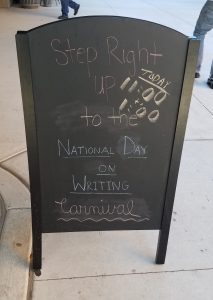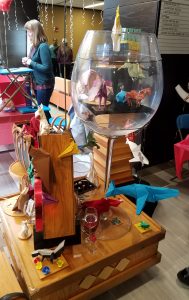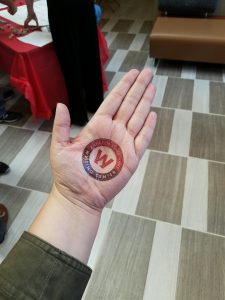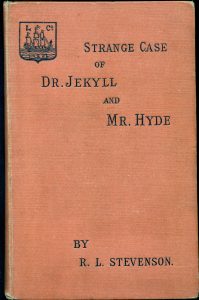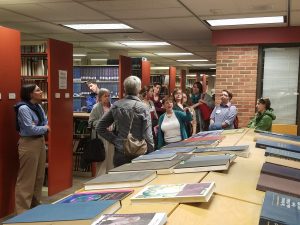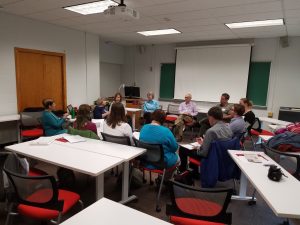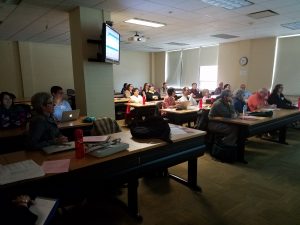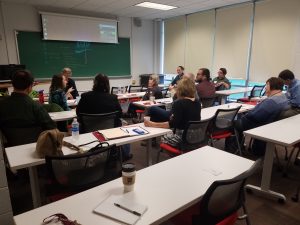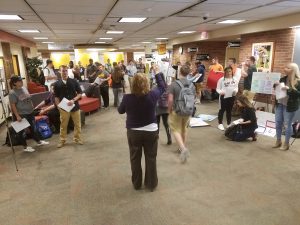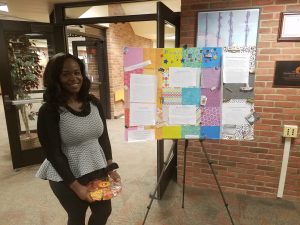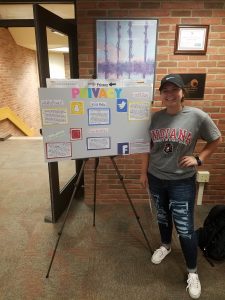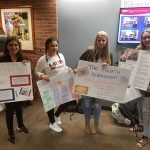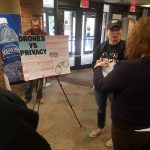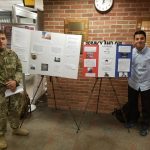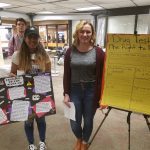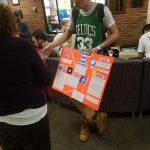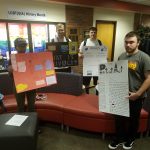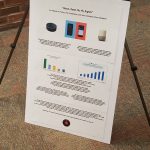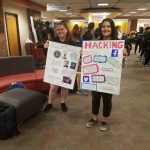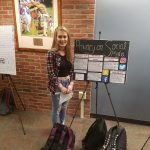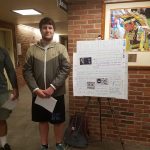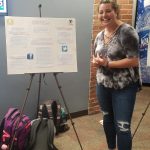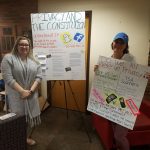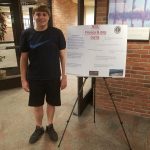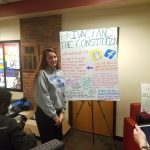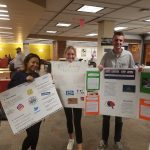Whether you’re a first semester freshman or a semester away from graduating, being successful likely ranks high on your list of priorities.
(At least we hope it does.)
At IUP Libraries, we support your commitment to success in various ways. Studies have shown that using library resources can improve student retention, and raise your GPA!, which ultimately equals success not only for now, but for your future as well.
The following is a list of the many, but not all the ways, the library can be part of your success story. Throughout the year we’ll be highlighting and focusing on each of these areas. In the meantime, if you have any questions about something mentioned here, just ask us at the reference desk. We love reference questions!
1) Our dedicated library faculty, staff, and student workers.
 Think of us as part of your personal support team. We want you to succeed not only at IUP, but when you leave our campus as well. Stuck on how to format a reference list in APA? We can help with that. Do you need to find resources that will take your assignment to the next level? We’ve got you covered. We’re always willing to help you, you’ve only got to ask.
Think of us as part of your personal support team. We want you to succeed not only at IUP, but when you leave our campus as well. Stuck on how to format a reference list in APA? We can help with that. Do you need to find resources that will take your assignment to the next level? We’ve got you covered. We’re always willing to help you, you’ve only got to ask.
2) Online resources, like databases and e-journals.

We provide access to over 63,000 journals, available on our on website, for your researching needs. These can be accessed directly by clicking on the e-journal tab or the library databases link. You can also find them using the library catalog, but if it’s all a little overwhelming at first, come by the reference desk and we’ll give you a brief tutorial.
We also have access to dissertations, written by former IUP students, as well as those from other institutions. In addition, students could also find dissertations in our Knowledge Repository, where scholarship by the IUP campus is housed. Access to these services can be found on the library’s homepage or clicking on the links above.
3) Books! But of course.
 What kind of library would we be if we didn’t mention our books? We have a collection of 426,000 books AND 277,194 e-books on just about any subject you need to research. Use the library catalog feature on our home page to search and remember to use the refining tools on the right to narrow your search.
What kind of library would we be if we didn’t mention our books? We have a collection of 426,000 books AND 277,194 e-books on just about any subject you need to research. Use the library catalog feature on our home page to search and remember to use the refining tools on the right to narrow your search. However, we can’t hold everything, physically and electronically, so if there is something you’re looking for that we don’t have, use our interlibrary loan service and we’ll be happy to get you the materials you need. Request forms can be filled out online for both books and journal articles.
However, we can’t hold everything, physically and electronically, so if there is something you’re looking for that we don’t have, use our interlibrary loan service and we’ll be happy to get you the materials you need. Request forms can be filled out online for both books and journal articles.
4) Media resources.
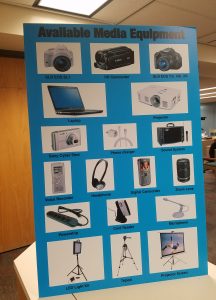 Some projects require more that just knowledge found inside a text. Sometimes you have to get creative, but you don’t have a camera or a projector. No worries! We’ve got you covered. Check out the various items we have to loan out at our Media Services Department.
Some projects require more that just knowledge found inside a text. Sometimes you have to get creative, but you don’t have a camera or a projector. No worries! We’ve got you covered. Check out the various items we have to loan out at our Media Services Department.
5) Quiet study areas.
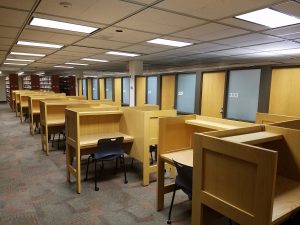 The first floor is a busy place and there are times when you’ll need somewhere that’s much more quiet. Visit our other floors for more quiet areas, the second floor is designated specifically as a quiet study space, not to mention our public study carrels, open on a first come first serve basis, and private study carrels for doctoral students. To get more information or ask any questions you have, stop by the circulation desk.
The first floor is a busy place and there are times when you’ll need somewhere that’s much more quiet. Visit our other floors for more quiet areas, the second floor is designated specifically as a quiet study space, not to mention our public study carrels, open on a first come first serve basis, and private study carrels for doctoral students. To get more information or ask any questions you have, stop by the circulation desk.
6) Studio 1b.
 Did you know that with the push of just one button you can unleash your creativity and add an extra element to your projects? Yes, it’s really that easy. Located within the Stabley Library on the second floor, this production studio is limited only by your imagination. Wanna check it out? Simply reserve a time online and remember to bring a USB thumb drive.
Did you know that with the push of just one button you can unleash your creativity and add an extra element to your projects? Yes, it’s really that easy. Located within the Stabley Library on the second floor, this production studio is limited only by your imagination. Wanna check it out? Simply reserve a time online and remember to bring a USB thumb drive.
7) Research guides.

Stuck on a project and don’t know where to turn for research? While you could come into the library, we aren’t going to be around at 1:00 in the morning, not that we know anything about writing research papers at 1:00 in the morning. 🙂 But, don’t let that stop you from succeeding! Check out our list of research guides, located on the home page, full of research tips and links to get you the help you need, whenever that may be.
8) Special collections and archives.
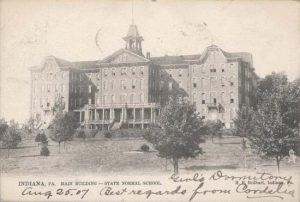 The image above is from our special collections from 1907 of Sutton Hall when it was the main dormitory on campus as part of the State Normal School. This is one of many items our archives and special collections hold. In addition to 600,000 images, the archives also contains 300,000 books, including a rare book collection, publications specific to the history of Pennsylvania, along with digital collections. More information on how to browse and use the collections can be found using this link.
The image above is from our special collections from 1907 of Sutton Hall when it was the main dormitory on campus as part of the State Normal School. This is one of many items our archives and special collections hold. In addition to 600,000 images, the archives also contains 300,000 books, including a rare book collection, publications specific to the history of Pennsylvania, along with digital collections. More information on how to browse and use the collections can be found using this link.
9) The Orendorff Music Library.
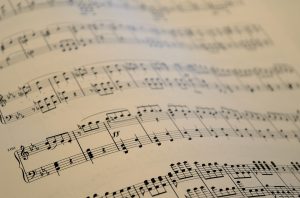 Located in the Cogswell Music Building, the Orendorff Music Library is the place to begin your musical research. Headed by Dr. Carl Rahkonen, is home to 7,000 circulating books, 15,000 scores, 12,500 sound recordings, on both LP and compact disks. In addition, the library has access to various online resources and databases, which can be accessed on their home page.
Located in the Cogswell Music Building, the Orendorff Music Library is the place to begin your musical research. Headed by Dr. Carl Rahkonen, is home to 7,000 circulating books, 15,000 scores, 12,500 sound recordings, on both LP and compact disks. In addition, the library has access to various online resources and databases, which can be accessed on their home page.
10) Bring your assignment instruction services.
While you can always just drop by the reference desk, you can also make an appointment to work one-on-one with a librarian specializing in your assignment’s subject area. We can help you come up with search strategies, brainstorm keywords for your assignment, and identify the best resources to get the job done. Setting up an appointment is easy to do. Click on this link to find the librarian best suited to help you and you’ll find out the best way to get in touch with them.
*11) How could we forget one of the most essential elements to success? Caffeine. No matter your drink of choice, Java City, located on the first floor of the library, has you covered. Stop in for an early morning pick me up or a late night boost of energy and brilliance.
Check back on our blog and social media accounts as we’ll be continuing to explore these themes on student success throughout the year.

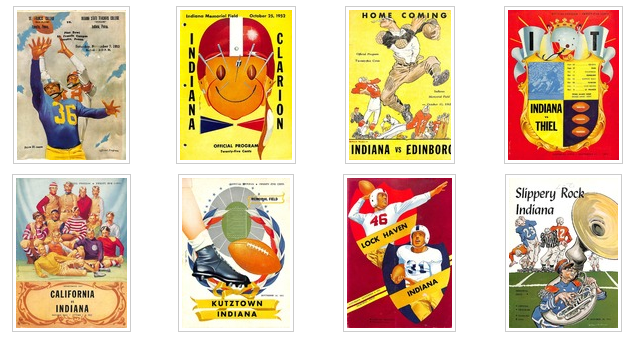
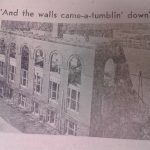
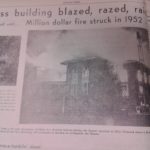
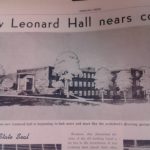
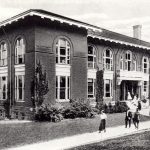
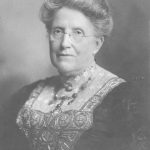
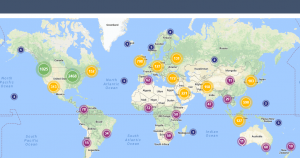
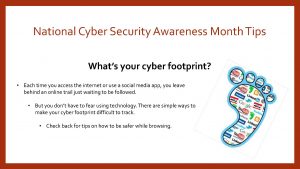
 “THINK” before you post.
“THINK” before you post.
 Protect your privacy.
Protect your privacy.
